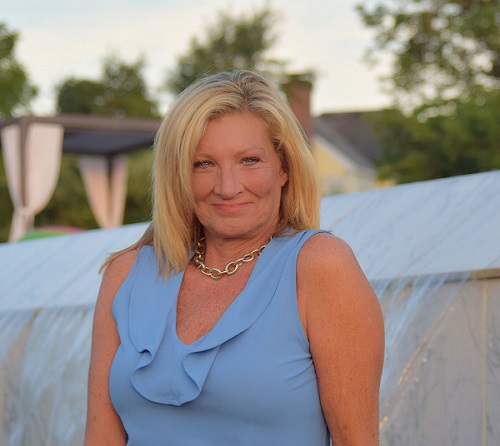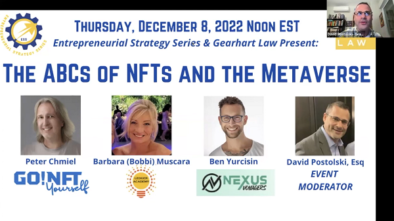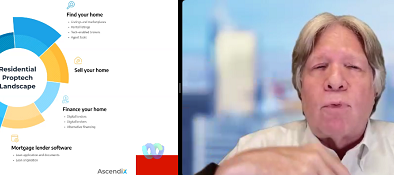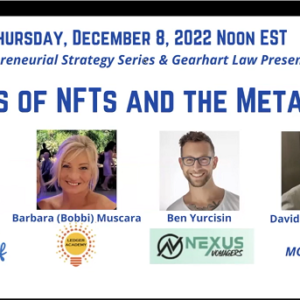The Ledger Academy’s Bobbi Muscara is all about the Blockchain
If you want to know about Hyperledger, the metaverse, non-fungible tokens (NFTs), cryptocurrencies, blockchain for business and the many career opportunities available for people to work in the new industries that surround all of this, Barbara (Bobbi) Muscara is a good person to know.
Muscara is chairperson of the Learning Materials and Documentation Working Group and a Technical Steering Committee member at the Hyperledger Foundation (San Francisco), an industry-wide open-source initiative to advance blockchain technology, governed by the Linux Foundation (San Francisco). She is also a co-organizer of several New Jersey meetup groups on these topics, and is director of education at Princeton-based Ledger Academy.
Before her involvement with blockchain, Muscara was a teacher of technology at the high school and college levels for 28 years. When blockchain emerged, she wanted to learn more, and in 2017 she began her studies, with few resources available to help. That quest for knowledge led her to become an expert in many areas of blockchain and to share her knowledge with others.
NJTechWeekly.com interviewed Muscara to learn about the many facets of her world.
The first thing that Muscara will tell you is that the blockchain ecosystem is moving so fast that by the time anyone becomes proficient in one area, it has already changed. This is why it’s been difficult for people to write curricula for courses in this field. That being said, she believes that anyone who wants to know more about this area can take her free course, Blockchain for Business — An Introduction to Hyperledger Technologies, on the Hyperledger Foundation website.
The Metaverse
One of the areas that is changing quickly is the concept of the metaverse. Before Mark Zuckerberg ever said he was going to change the name of Facebook to “Meta,” Muscara had been populating a metaverse with activities and activations from her business life. She built her personal metaverse with the help of Ethan Berg, a Philadelphia-based developer who has created a white label metaverse and turned it into a business called “Agora World” (Philadelphia). Individuals can lease a metaverse in much the same way they can lease a property, and that’s what Muscara did. She then built her own virtual city based on the template that Berg supplied. The metaverse template includes an expo building and a virtual racetrack where people can race their NFT cars. Or, one could walk through the metaverse via an avatar, and see all the things that Muscara is interested in right now.
For example, one of the first things you see is a building that houses the Ledger Academy, an educational resource and consulting firm for people who want to learn more about blockchain. If you go inside, you can see the Ledger Academy Hub, which is populated with videos and lessons about blockchain. That portion also has clickable regions with links to live events. People can go there, said Muscara, and “I will be sitting in my living room and will be talking to everyone in the metaverse.” Visitors can also take that free course, which Muscara developed for the Linux Foundation.
Another area in the metaverse gives people access to information about NFTs (non-fungible tokens). These are digital assets that can represent almost anything. For example, a museum can create a digital asset version of the Mona Lisa and sell very small portions of it, democratizing ownership.
Job Fairs in the Metaverse and Online
Visitors to Muscara’s metaverse can also go to a job fair for the blockchain industry. She said that employers are looking for both the very tech savvy and those who would like to perform other roles in the industry. These job fairs are also run online via the blockchain meetup groups in the state.
“We found that the people coming to the Hyperledger working groups were always saying that they are hiring,” she told NJTechWeekly.com. “So, we decided to run a four-part job expo every season. It starts with a welcome meeting where we talk to potential employees about the skills they have and what jobs are out there.” The second meeting invites employers in to talk about what they are looking for. The third meeting, with the Hyperledger Princeton meetup group, focuses on how to market yourself — getting a LinkedIn page, creating a resume, writing cover letters, obtaining letters of recommendation. “It’s not so hard to apply for a job, but if you have none of that, it’s a monumental task,” she noted. In the final meeting, individuals get to sit down and talk to potential employers virtually. Recent participating companies were Accenture (Florham Park), DTTC (New York), Kaleido (Raleigh, N.C.) and ConsenSys (Brooklyn, N.Y.).
There are more jobs available than applicants, Muscara acknowledged, and she thinks this is because “people are afraid to apply because it’s such a new field, and it’s scary to go for a job in a field that you’ve never worked in. But in this field, nobody’s worked in it, it’s so new. Your skills will cross over absolutely, and they’re looking for project managers, writers and other skills that you didn’t think pertained to blockchain. Developer skills transfer over, as do network architect skills. They are all the same.”
The Giving Chain
Another section of Muscara’s metaverse discusses the Giving Chain, a social-impact project using blockchain to power generosity. The award-winning project uses the blockchain to track the transfers of goods. It works with two models: In one of them, the donor initiates a donation and the recipient concludes the transaction; in the other, a nongovernment organization (NGO) requests a donation from the donor node, which sends the donation to the recipient, who then sends a confirmation to the NGO. At each point in the operation of both models, an NFT is generated to track the transaction through its stages.
Also on this “floor” of the metaverse is Muscara’s virtual office, where she displays all the NFTs she has bought.
If your avatar walks upstairs, it can visit the Ledger Academy’s consulting division, where Muscara is working on two projects. One, called “the Farm Chain,” helps farmers with compliance and runs blockchains through the entire seed-to-sale process. The second project is through Hyperledger’s Climate Action and Accounting Special Interest Group, which is developing the standards for carbon credit exchanges. “The website I’m working on is called ‘Global Energy Chain,’ and it will be for the accounting and trading of carbon credits. We’re going to tokenize those,” she said. Anyone can join the working group by clicking the banner, she added.
The amazing thing about Muscara’s metaverse is that she was able to populate it in about a week, using Berg’s template.
Muscara believes that New Jersey is a fertile area for both developing a blockchain workforce and creating new companies. There is certainly plenty of interest. The Princeton Blockchain and AI meetup group has about 1,400 members, while Hyperledger Princeton has about 500 members. And some students from Rutgers have taken the lead in the Giving Chain project, she noted.
For those interested in the metaverse, Muscara provided the following links:
Metaverse instruction: https://agora.agoravr.world/event?roomCode=lah
Getting started with Agora World: https://agoravr-1.hubspotpagebuilder.com/agoragettingstartedusers




